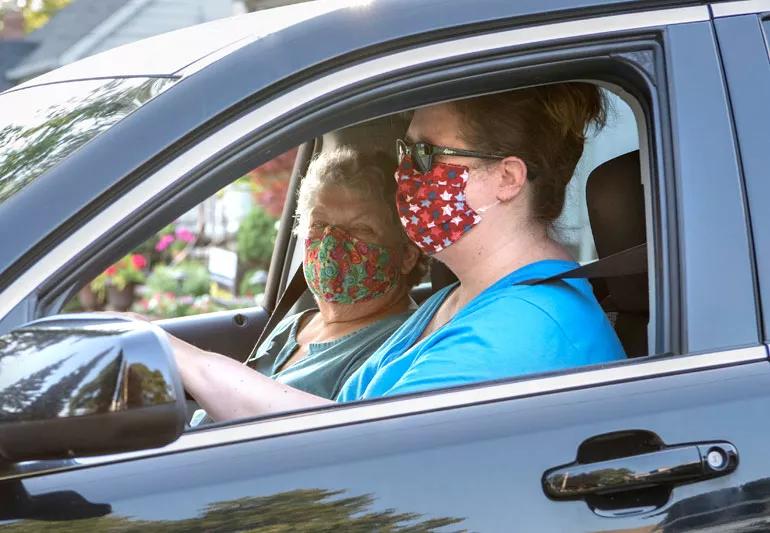The short answer from a hospital medicine specialist

Image content: This image is available to view online.
View image online (https://assets.clevelandclinic.org/transform/f9afb663-61ae-41f8-8592-fe8adb95e7df/faceMaskCar-RN-070720-770x533-1_jpg)
wearing face masks in car
A: If you’re by yourself in your car, or with someone in your household, that’s a pretty low-risk situation and you don’t need to wear a cloth face mask.
Advertisement
Cleveland Clinic is a non-profit academic medical center. Advertising on our site helps support our mission. We do not endorse non-Cleveland Clinic products or services. Policy
However, there are a few scenarios in which wearing a mask in the car does make sense to help protect others during the coronavirus pandemic. One would be if you’re carpooling with someone who doesn’t live with you. That includes if you’re in a ride-sharing vehicle. I would avoid this to the extent that is possible. But if you can’t, you should wear a mask since you can’t keep a safe physical distance from someone in that case.
You should also wear one if you’re rolling down your window to interact with someone at a drive-thru or curbside pickup location.
If you’re a delivery worker or are making several stops during one trip, it’s reasonable to keep your mask on in the car between stops. That would prevent you from repeatedly touching your mask, which could have germs on it, by taking it off and putting it back on each time you get out of the car.
If you are wearing a mask in the car, you want to make sure it’s on correctly. It should cover your nose and mouth but not your eyes, and it should not obstruct your vision.
Advertisement

Delivered every Tuesday!
Sign up for our Health Essentials emails for expert guidance on nutrition, fitness, sleep, skin care and more
It's a letter about the news!

Every two weeks once
Sign up for our Health Essentials emails for expert guidance on nutrition, fitness, sleep, skin care and more.
Learn more about our editorial process.
Advertisement
A pediatric psychologist weighs in on continued masking for kids
The short answer from an infectious disease specialist
What to know about running in a face mask during the coronavirus pandemic
Proper etiquette for asking others to comply with mask rules
Learn how one simple action can help keep the whole family safe
Talking points from a healthcare provider
The short answer from an infectious disease specialist
Make it easier to hear and be heard
Type 2 diabetes isn’t inevitable with these dietary changes
Applying a hot or cold compress can help with pain
Pump up your iron intake with foods like tuna, tofu and turkey